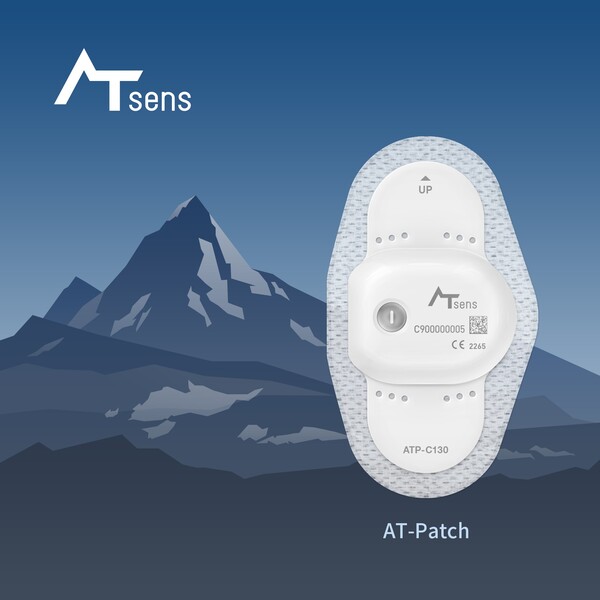ATsens said on Friday that its real-time ECG patch, AT-patch, will be used in the “world’s first” clinical trial to evaluate the incidence and risk of arrhythmia in adults climbing Mount Everest in conjunction with a university hospital in Switzerland.

The "Cardiac Arrhythmias at Extreme Altitude" clinical trial is a prospective cohort study of 30 healthy adults between the age of 18 and 80 years old using the ATP-C130E model for up to 14 days while climbing Mount Everest and evaluates the incidence and risk of arrhythmia at high altitudes.
The study's primary objective is to investigate the incidence of supraventricular and ventricular tachycardia and bradycardia arrhythmias during the Mount Everest ascent. Additionally, the secondary objective is to investigate cardiac arrhythmia clinical, electrocardiogram, and echocardiographic predictors at extreme altitudes. The study is expected to run until September this year, said a company official.
The clinical trial is being conducted by a clinical research officer at Bern University Hospital, who proposed the clinical trial to AT-Sens after evaluating the accuracy, reliability, and suitability of the AT-Patch as an ECG measurement device suitable for climbing Mount Everest. AT-Sens also conducted its own low-pressure test and confirmed the suitability of AT-Patch for use when climbing Mount Everest which stands at 8,849m above sea level.
The AT-patch is the first long-term continuous wearable electrocardiogram in Korea approved by the U.S. FDA for monitoring and diagnosing arrhythmias, and also holds an official supply partnership with the UK’s National Health Service (NHS). The 13g lightweight patch is equipped with a dustproof waterproof (IP44/IP57) function and works in tandem with AT-Report software to analyze the ECG signals.
"We are proud that AT-Patch was adopted in recognition of its suitability for clinical trials conducted in extreme environments like Mount Everest," said ATsens CEO Jeong Jong-ook. "Based on the advantages of AT-Patch, we will strive to continue contributing to early diagnosis of heart disease for patients at home and abroad."
Related articles
- ATsens to supply ECG patch to Polish state hospital
- Korea’s 1st long-term continuous ECG device gets FDA approval
- [2023 JP Morgan Healthcare Conference] ‘Investors more interested in digital health’
- Regulator certifies VUNO's ECG device for at-home use
- J&J MedTech Korea to co-promote Huinno’s ECG monitoring patch with Yuhan Corp
- ATsens, Huinno vie for piece of global ECG patch monitoring market

